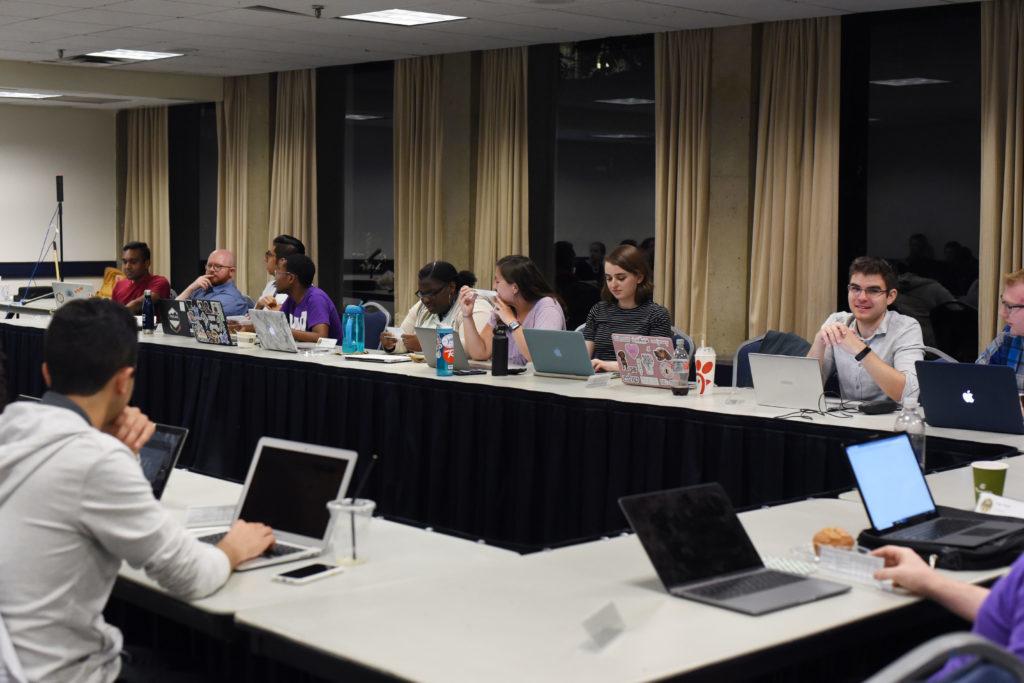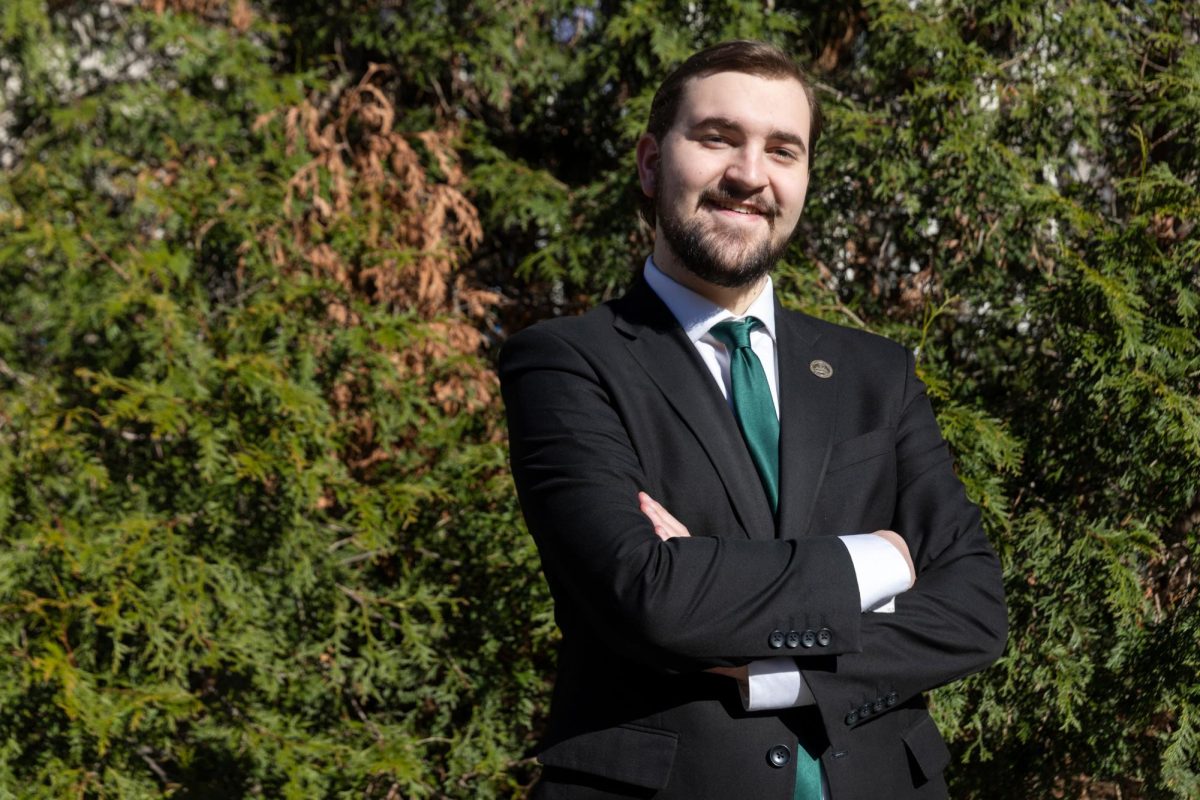The Student Association Senate is facing the highest number of vacancies in at least three years by this time in the academic year.
Six senators have resigned from the SA permanently or to take on a new role in the organization since August, leaving the organization with 19 vacant seats – about 44 percent of the senate. Some members who recently resigned said they left their positions because of the time commitment expected of them.
“This is a year that we’re trying to get a lot done, and the commitment is high and you can feel that from everybody else in the room, that the commitment to this body is really high,” SA Executive Vice President Amy Martin said. “So students who maybe feel they can’t match that are just recognizing that it would be better for them to step down.”
Last academic year, the SA Senate kicked off the year with only four vacant seats – the fewest number of empty seats in at least three years. In 2017, the body experienced 11 vacancies.
Former senators Arman Hussain, Caroline Beason, Justin Diamond, Robert Yassky, Julian Taylor and André Gonzales have resigned from the SA Senate since August. Hussain did not return a request for comment, and Beason declined to comment.
André Gonzales, the SA Senate’s former pro tempore who oversaw the body’s governance and nominations committee during the vacancy process this fall, left his senate post Sunday to head the Colonial Moniker Task Force, a new committee in the executive cabinet.
He said it is “really difficult to nail down” why senators choose to resign because each senator may choose to leave their post for different reasons.
“It’s up to each person on how much they want to dedicate to the Student Association,” he said. “I don’t by any means want someone to prioritize the Student Association Senate over their studies or their own health.”
Gonzales said the governance and nominations committee is forwarding nine applications to the SA Senate for consideration at the organization’s biweekly meeting Monday night. He said roughly 53 students – including 11 graduate students – applied for senate vacancies, first-year senate seats or committee aid positions, while seven students applied for the student engagement committee.
Gonzales said seven undergraduate and seven graduate seats need to be filled. The senate must approve an additional three undergraduate and two graduate students to serve in first-year senate positions, he said.
“What I’ll say is, I think that for undergrad seats, we did a pretty good job at advertising seats and trying to solicit applicants,” he said. “But there’s always improvements to be made, and I think that this year we’ve seen an extensive conversation occur around how we’re reaching out to grad students.”
Martin, the SA’s executive vice president, said vacancies can impact the organization’s ability to reach quorum – the minimum number of senators needed to hold a meeting. She said having fewer senators also gives more responsibility to current senators who need to pick up the slack of vacant seats.
“The more voices that are in a room, the better we work,” she said. “The whole point of our body is to be representative of the entire student body, and if we’re missing voices, then we’re not being representative.”
Justin Diamond, a former senator representing the Elliott School of International Affairs, said after his resignation during the first SA meeting of the year that he felt “a little morally obligated” to serve as a senator after he received enough write-in votes for the seat.
He said his time in the SA, where he continually attended meetings, reinforced his ideas about the SA’s inability to make change because he felt that senators were not accomplishing projects or tasks.
Diamond launched a last-minute bid for the SA’s top post two days before students could begin voting with a promise to abolish the organization. But Diamond, who likely forced the first runoff election for SA president in seven years, lost the election after capturing about 33 percent of the vote.
“It reinforced my notions of the SA being essentially just smoke and mirrors where it looks like they’re doing something and there’s not much getting done,” Diamond said after he resigned.
Robert Yassky, a former SA undergraduate senator for the School of Business who resigned during the first SA meeting of the year, said in an email that he enjoyed his “short time” in the organization representing business school students. He declined to comment on why he left the SA.
“It was an honor to be elected and develop relationships with students who are passionate about the betterment of the University as a whole,” he said. “I believe it would be best for me to refrain from any further comment at this time.”
Taylor, a former SA graduate senator for the Columbian College of Arts and Sciences who left his position in August, said in an email that he resigned because he does not have time to balance the commitment as he pursues a master’s degree in public policy and works full time.
“I had no qualms with the senate,” he said. “I enjoyed my time in the organization.”








